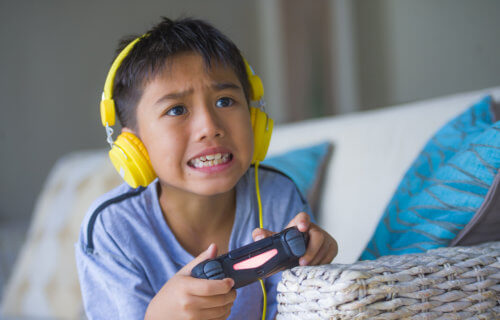WASHINGTON — There’s a certain perception society has about children who play a lot of video games. While some may think most kids who like their gaming systems have an unhealthy addiction, researchers at Brigham Young University say not so fast. According to a six-year study released by the American Physiological Association, playing video games can morph into an addiction and have adverse affects on some adolescents but not all.
Researchers studied 385 older children as they made their transition into adulthood. Once a year throughout the review participants filled out multiple questionnaires. Depression, anxiety, aggression, delinquency, empathy, prosocial behavior, shyness, sensory reactivity, financial stress, and problematic cell phone use were all measured by the study authors.
The results reveal mental, social, and behavioral issues can surface for those who become addicted to playing video games. For 90 percent of gamers however, there aren’t any noticeable long-term effects. Researchers say compulsive gaming is not a one-size-fits-all situation. For the 10 percent of gamers put into the compulsive gaming category, depression, anxiety, shyness, and obsessively using a cell phone emerged as problems once these children entered adulthood.
“The aim of this particular study is to look at the longer-term impact of having a particular relationship with video games and what it does to a person over time,” says lead author Sarah Coyne from BYU in a university release. “To see the impact, we examined the trajectories of pathological video gameplay across six years, from early adolescence to emerging adulthood.”
Changing the perception of gamers
Males with low levels of prosocial behavior (intent on helping others) tend to have a higher risk of developing video game addiction. Those displaying higher prosocial behavior, such as volunteering to help someone else, had fewer symptoms of addiction.
Coyne discovered that 72 percent of adolescents had low addiction symptoms over the span of the six-year study. At the start of the study, 18 percent displayed moderate symptoms, leaving 10 percent of children who showed increases in addictive habits throughout the study.
The study proves that, from an overall standpoint, video game addiction isn’t a major issue. For one in 10 children however, there are serious consequences which come later in life. Study authors say the results also break from stereotypical thoughts, such as someone mindlessly camping out in their mother’s basement and playing video games all day.
“I really do think that there are some wonderful things about video games,” Coyne concludes. “The important thing is to use them in healthy ways and to not get sucked into the pathological levels.”
The study appears in the journal Developmental Psychology.
